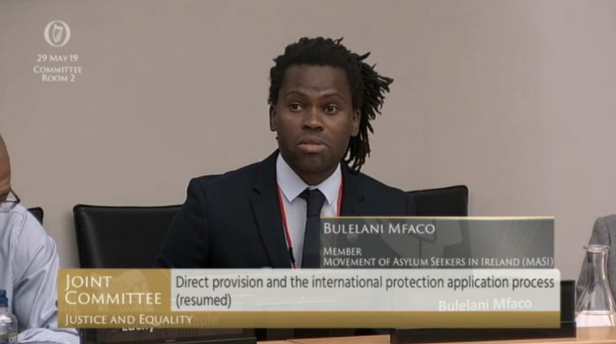A CLARE-based advocate for those seeking asylum in Ireland has said he remains hopeful that plans to end Direct Provision by 2023 will succeed, despite considerable opposition from the Department of Housing.
South African national Bulelani Mfaco, who lives in Knockalisheen, is a member of an expert group, led by Dr Catherine Day. In October, the panel published a report calling for a new asylum system to be put in place over the next three years. The plan recommends housing applicants in a State-owned centre for three months, then helping them to move to own-door accommodation with the support of a scheme similar to the Housing Assistance Payment (HAP).
While Mr Mfaco and fellow members of the advisory panel argue that the proposed system would lead to cost savings for the State and more humane living conditions for asylum seekers, there is considerable resistance from the Department of Housing. Submissions by the department said the plan has the potential to put homeless people at a disadvantage when accessing housing.
“It is disgraceful to pit homeless people against asylum seekers, because they are homeless too,” Mr Mfaco said. “They’re saying that if you are an asylum seeker, you’re making someone else homeless. The fact is it’s costing the State more to keep someone in Direct Provision than it is to give them housing support and better access to the labour market.”
Mr Mfaco explained that the expert report is based on the existing system for housing programme refugees who spend time at reception and integration facilities before being housed. “Our proposal is modelled on that system, it’s a workable model. The State would make savings because it costs more to house someone in Direct Provision than to give them housing support. It could cost €100 per day to house someone in a hotel. That’s not humane, especially if you have a family. It also costs more than supporting someone to have their own accommodation. It’s a no-brainer to integrate people into the social welfare and accommodation services. People may not need social welfare if they’re allowed into the labour market.”
The Programme for Government gives a commitment to the ending of Direct Provision and a White Paper, informed by the expert group, is expected to be published next month. “I hope there will be political support for it,” said Mr Mfaco. “It’s a no-brainer and it’s not new. There was a system in place before Direct Provision. The argument that it’s acceptable to treat asylum seekers inhumanely isn’t valid and there certainly isn’t a situation where you have someone sitting looking at a brochure choosing what country to come to. Four out of every five asylum seekers flees to a neighbouring country.”
Chair of the expert group, Dr Day said she recognised it would take time for local authorities to build up housing stock, but that housing pressure was not the same in every county. She said she believed that with the co-operation of local authorities, NGOs and local communities a new system of housing asylum seekers can be achieved.

